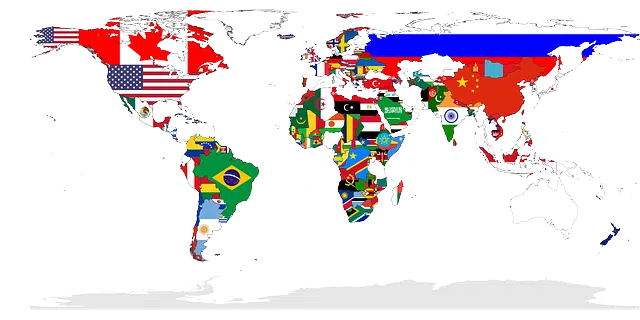
The homeland is a territory linked to an individual for legal, historical and/or emotional reasons.
From the Latin patria , the homeland is the native or adopted land that is linked to a person by emotional, legal and/or historical ties. The homeland can be, therefore, the place of birth, the town of one's ancestors or the country where a subject settled from a certain moment in his or her life.
For example: “I have lived in Australia for fifteen years, but my homeland is Colombia” , “Anarchists consider themselves men of the world and claim that they have no homeland” , “A soldier must be willing to give his life for his country” .
The link with the homeland
When it comes to an emotional bond with a country , many times the homeland is discovered in adulthood, since it is necessary to travel abroad and lead an active life on a social level to discover that special bond, so difficult to describe and justify. that feels with the place in which we believe we should have been born.
When trying to establish precisions and limits to the concept of homeland, ideological and political notions come into play that can even be modified over the years. According to certain positions, the homeland is always associated with a nation state; This is the same as saying that the territory of one's own nation is strongly linked to all the values of the homeland.
In other cases, the homeland is rather a cultural and historical heritage shared by people who may be geographically separated. This would be the case of the Gypsy homeland, which does not have a physical center.

Many times the concept of homeland is associated with the nation state.
patriotism
Within the family of this term, there is the concept of patriotism , a way of thinking that strongly unites a person with their homeland. It is a deep pride in being part of a territory (both native and adopted) and is equivalent to the feeling of attachment and admiration for one's own family . It is important to note that its use should not have negative connotations, since being a patriot does not indicate being capable of anything to defend the country, but rather feeling a strong bond with its cultural traits and history.
There are two opposing positions regarding patriotism: on the one hand, a large percentage of people feel such an attachment to their homeland that they completely rule out the possibility of living abroad ; On the other extreme are those who think that these types of feelings are responsible for wars, xenophobia, racism and genocides, among other evils of humanity. As always, a segment of the population finds itself in the middle of these visions, indifferent to their arguments.
The motherland
The nation that gave rise to another is called the motherland , whether it is the physical place in which it was born or the country from which a group of immigrants left to conquer a new territory. Likewise, this term can be used to refer to the political, cultural and historical relationship that exists between colonizing nations and their colonies. It is worth mentioning that this is a concept that is not part of everyday speech, but is usually found mainly in academic contexts.
Just as it happens in several regions of Latin America, it is common for the term motherland to continue to be valid years, decades, and even centuries after the independence of a country. In Argentina, for example, many people refer to Spain in this way.
a social group
The more symbolic meaning of homeland allows the term to be used to refer to different groups or social groups.
“The football country mourns the death of the former goalkeeper of the German team” y “The government has the obligation to put limits on the financial homeland to prevent it from taking millionaire profits without investing a peso in the country” son expresiones que muestran este uso.
